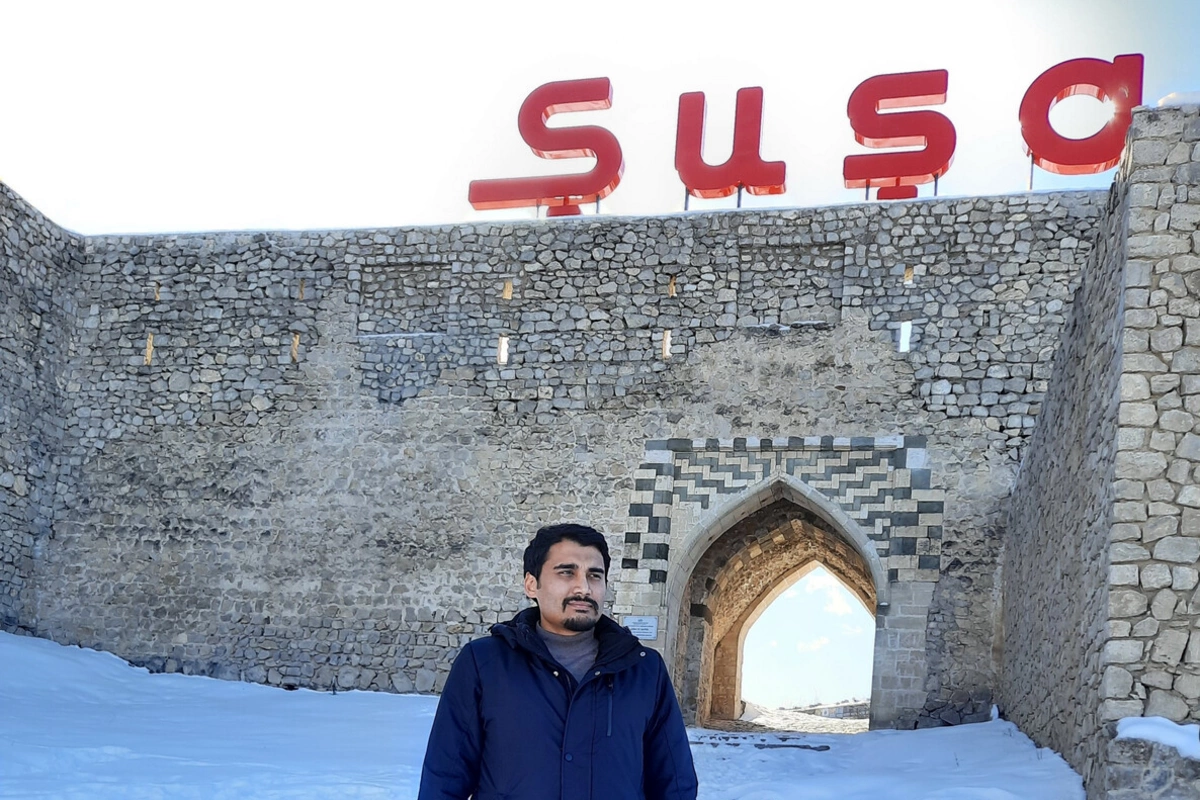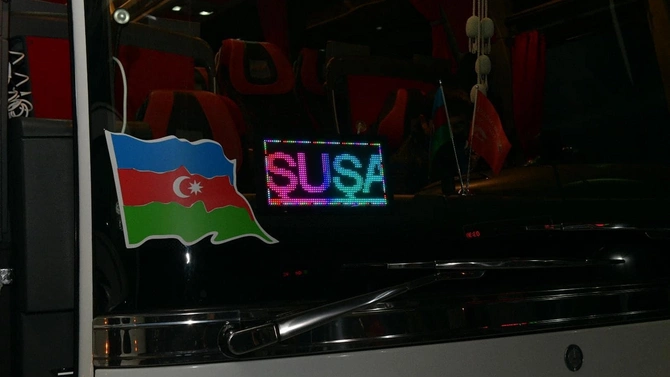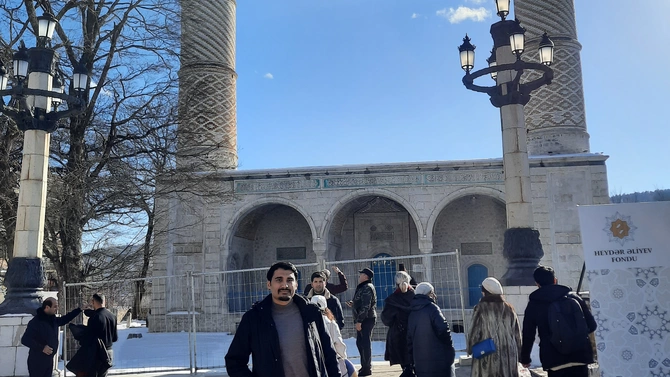
Shusha, Karabakh
Just two years ago an impossible dream, now Azerbaijani citizens can book one day trips to Shusha. Image: Rufat Madatli
In mid-January, Azerbaijanis were excited to hear news reports announcing that return bus trips would start operation from Baku and other points to the formerly occupied cities of Shusha and Agdam. Prospective visitors flooded the sales website yolumuzqarabaga.az (‘Our road goes to Karabakh’) with requests.
One of the lucky ones whose mouse click was perfectly timed to get a ride on one of the very first commercial services (January 24th) was Rufat Madatli, who talked to The Caspian Post after his journey to Shusha. The journey is a long one – around six and a half hours each way and, as yet, only available as a day trip as the necessary permits are not valid for overnight stays (no foreigners yet, either). So was it worth it?

The journey is six and a half hours each way. Image: State Transportation Service
Rufat: “It’s true that it would be a bit better if one could stay overnight because a person gets tired. But for me, even if we had only had 30 minutes to look at Shusha, it would have been well worth the trip. Shusha is everything to me - it’s a place I love. It’s our people’s city, we are proud of it. We have been yearning for this place for a long time”.
Rufat’s bus left at 6:30 am, with a full contingent of around 50 passengers, one of them a well-known journalist. Maybe ten of those aboard were IDPs/former residents, the rest tourists like himself. A police car escorted the bus the whole way. Permits are automatically granted when you buy the bus ticket.
Rufat notes that the new road was asphalted all the way. It was possible to see the new Fizuli airport from the window, but pretty much everything else along the route within the de-occupied area appeared to be in ruins. The last stretch of road approaching Shusha was hazardous due to snow on the numerous hairpin bends.
Journalists were waiting for them when the bus arrived. A branch of the Qoç Ət restaurant was open along with a couple of other small cafes, but they only really had time for tea and sweets, which had been laid out in front of the restaurant for the group. “I didn’t think about food. I couldn’t eat breakfast that morning because I was so excited. After ten minutes to drink the tea, it was time to start the tour.”
The group was expected to stay together with the guide and follow the tour. However, those who had personal connections with Shusha were able to go and seek out the remnants of their family homes.
The basic programme started by the city hall, took in statues of Natavan and other famous historical figures and then visited the Bulbul House Museum, which is now fully renovated. After a talk about Bulbul’s music, the route took them to the iconic Shusha Gates and the Upper Govher Agha Mosque (Yuxarı Gövhər Ağa Məscidi). Full access to the Vagif Mausoleum proved impossible due to all the snow making the route too slippery. Rufat noted quite a lot of ruined houses, not nearly as bad as Agdam or Fizuli, but more than he had expected. After some time at Cidir Duzu (a famous horse racing field and lookout point), the group returned to Qoç Ət and grabbed some food. The idea was to eat it on the bus on the way home, though it proved hard to persuade everyone to get back on the bus at the appointed time. In the end, they didn’t get back into Baku till around midnight.

Image: Rufat Madatli
What surprised you the most? “I didn’t think we would see Russian soldiers, but we did. The last part of the road that goes to Shusha from Baku meets the road that goes to Khankendi leading from the Armenian border through Azerbaijan’s Lachin city . So there were Russian soldiers at the crossroads.”
What sign is there of commerce in Shusha? As well as the Qoç Ət restaurant, there were three grocery stores - Bravo, Araz and Bolmart. There’s a restaurant in Bravo and a bakery. All these are mainly for construction workers who are rebuilding the town. They are building or renovating three hotels: Xaribulbul, Qarabag and one other.
What did he bring back? Soil. For himself and his colleagues at work. He wanted to buy some bread from the bakery to bring back, but by the time he remembered it was too late.
Any danger of mines? “Not in Shusha. They told us that all the mines have been completely cleared from Shusha.” Rufat muses “I don’t think Armenians put lots of mines there anyway because some of their people were living there after the town’s occupation in May 1992.”
How do you feel? “Before I went, when I heard this tourist route was opening, I was always refreshing the ticket website many times a day to see if the route was open. I was so excited. Having been, it’s impossible to really explain how it felt – being on the bus, it was like being on a rollercoaster. I had so much adrenaline.”
Four variant coach trips are currently available. To Agdam from Baku and Barda and to Shusha from Baku and Ahmadbayli (near the Araz River in Fuzuli Region), twice a week. When passenger flights commence to the new Fuzuli Airport, a new option from there to Shusha will start.
Share on social media
Shusha, Karabakh